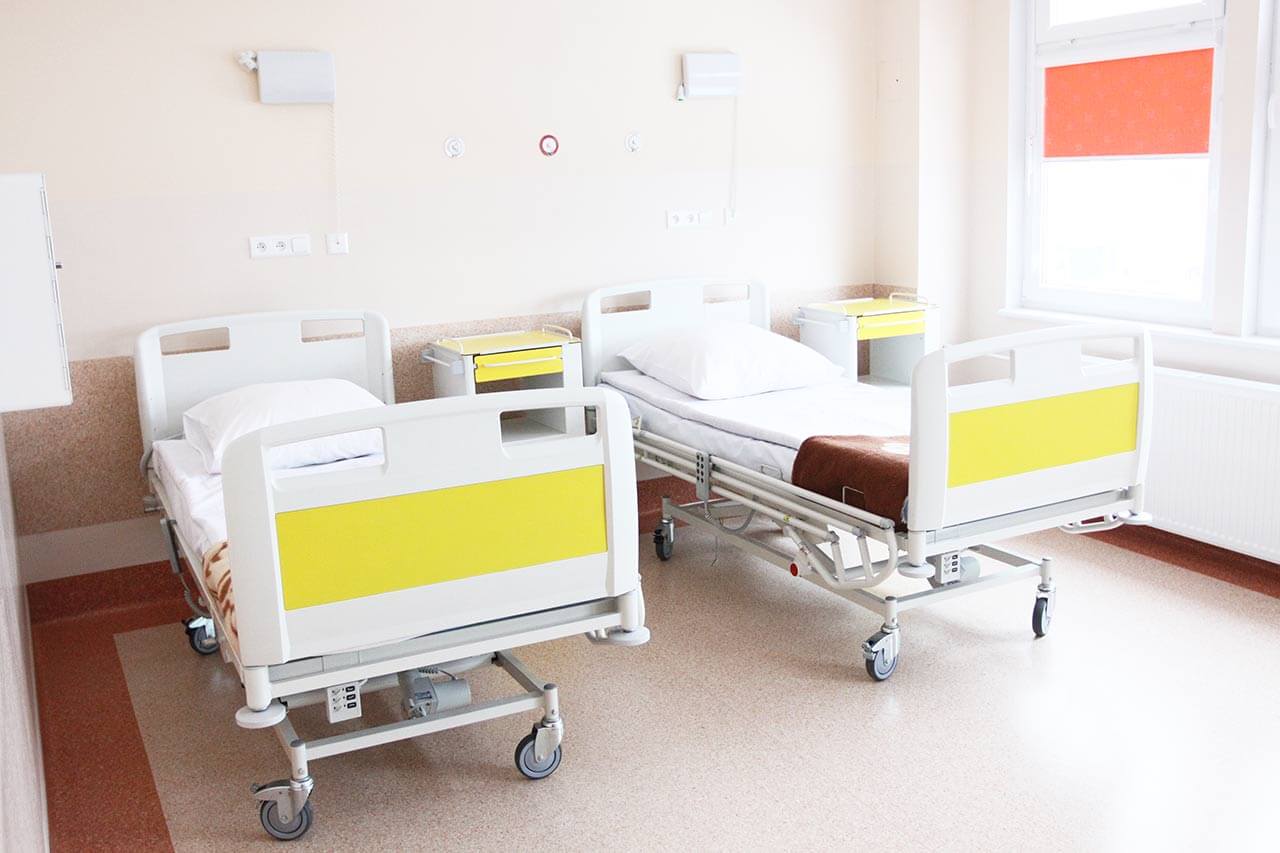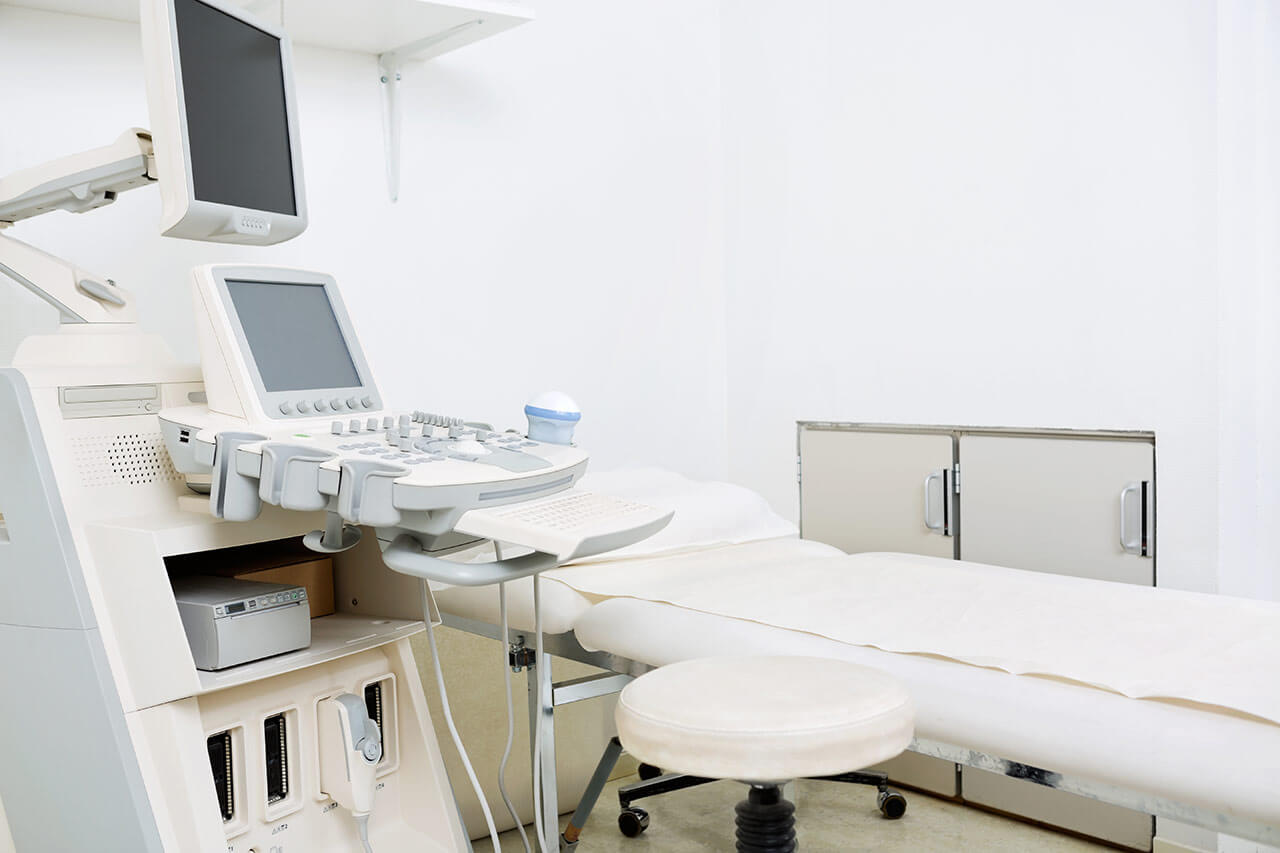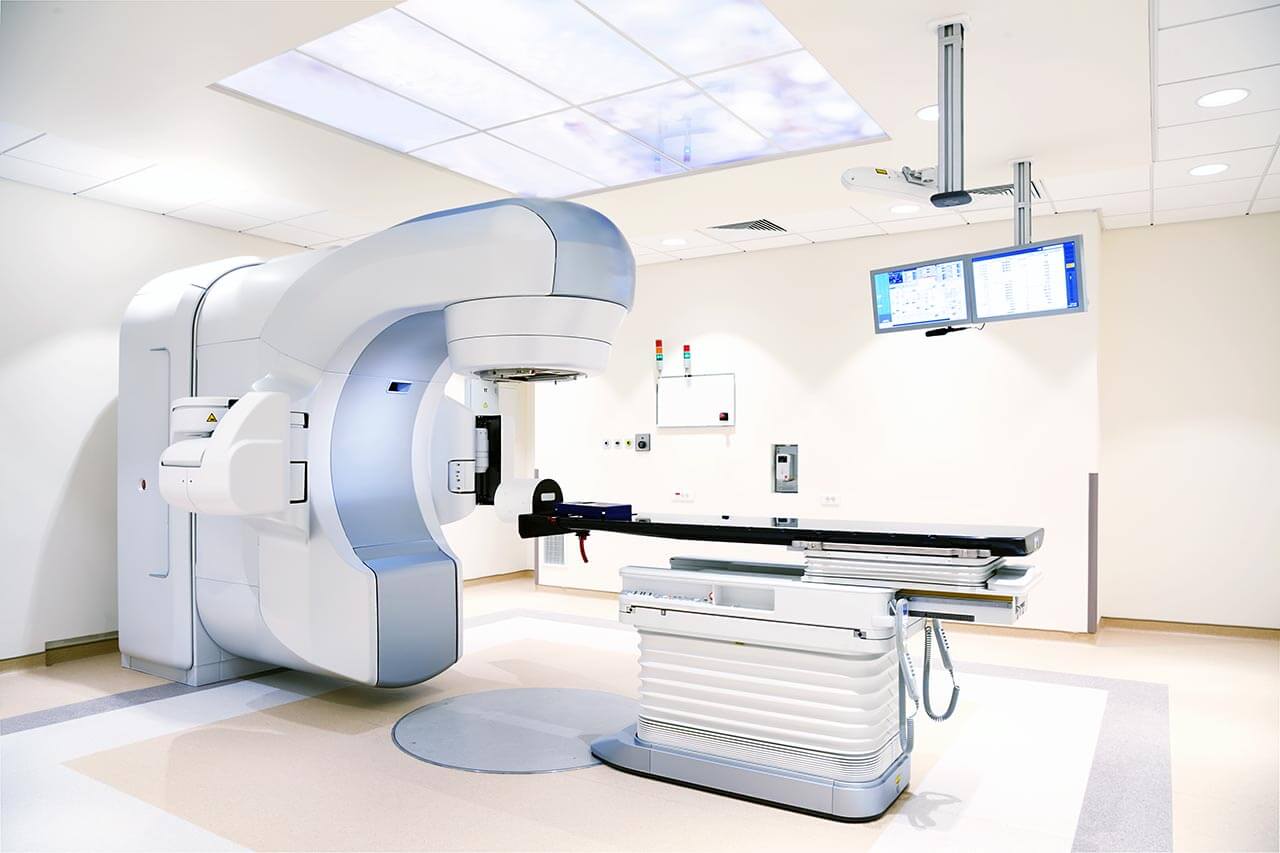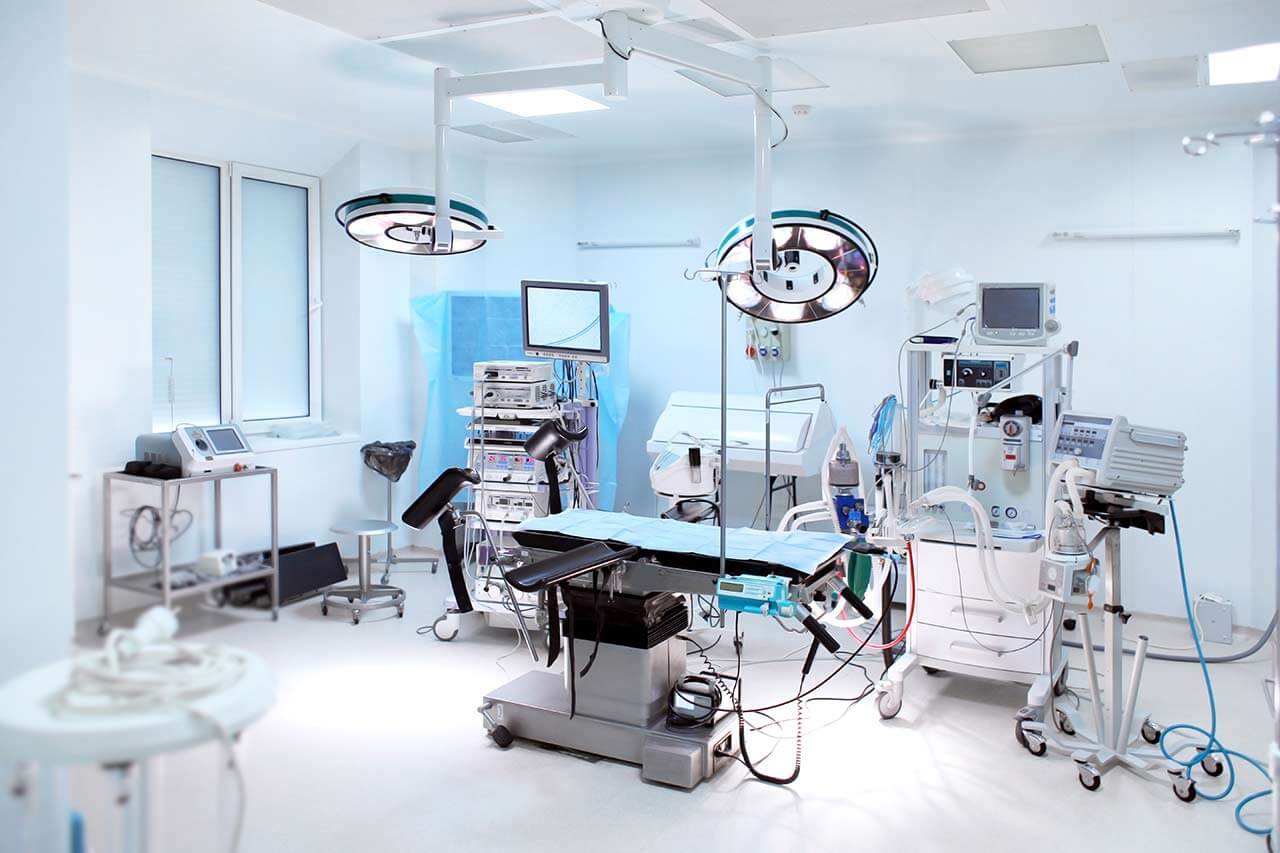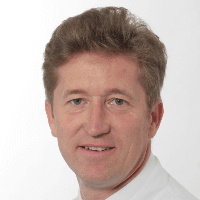
The program includes:
- Initial presentation in the clinic
- clinical history taking
- review of medical records
- physical examination
- laboratory tests:
- complete blood count
- biochemical analysis of blood
- indicators of inflammation
- indicators blood coagulation
- ophthalmologic examination:
- retinal examination
- gonioscopy
- slit-lamp examination
- pupil function tests
- ocular motility test
- ophthalmoscopy
- perimetry (visual field test)
- computer perimetry
- visometry (without correction and with correction)
- keratometry
- pachymetry
- refractometry (objective, subjective, cycloplegic)
- autorefractometry
- non-contact tonometer
- biomicroscopy
- preparation according to preoperative standard
- microinvasive non-penetrating deep sclerectomy
- symptomatic treatment
- nursing staff services
- elaboration of further recommendations
Required documents
- Medical records
Service
You may also book:
 BookingHealth Price from:
BookingHealth Price from:
About the department
The Department of Adult and Pediatric Ophthalmology at the University Hospital Duesseldorf offers the full range of services for the diagnostics and treatment of eye diseases. The outstanding quality of medical care is confirmed by numerous certificates and an ever-increasing number of patients. The department is headed by Prof. Dr. med. Gerd Geerling.
Of particular interest is the treatment of diseases of the anterior eye segment, especially corneal pathologies. The specialization also covers all types of corneal transplantation, cataract surgery and glaucoma treatment, all plastic surgeries on the eyelids, tear ducts and orbit, surgical and conservative treatment of retinal and vitreous diseases, therapy of neuro-ophthalmic diseases.
The department performs a large number of corneal transplantations (more than 10 years of experience) and is one of the largest and most reputable Transplant Centers in Germany. It has an inhouse Eye Bank, as well as the Lions Hornbank partner center, in which donor corneal transplants can be stored for several weeks. In the case of transplantation, sparing minimally invasive surgical techniques are used.
The service range of the department includes:
- Diagnostics and treatment of diseases of the anterior eye segment
- Corneal surgery
- Perforating keratoplasty (corneal transplantation)
- Posterior and anterior lamellar keratoplasty (DSAEK, DMEK, DALK)
- Crosslinking in keratoconus, keratoglobus, keratotorus and keratectasia after corneal refractive surgery (LASIK)
- Corneal tattoo
- Corneal prosthetics
- Cataract surgery
- Implantation of special lenses (including toric, multifocal and aniridia lenses)
- Cataract surgery combined with corneal transplantation or glaucoma surgery
- Surgical removal of cataract in children
- Glaucoma surgery
- Trabeculectomy (with antimetabolites)
- Canaloplasty
- Trabeculotomy
- Implantation of drainage implants in glaucoma (for example, Ahmed-Valve)
- Laser trabeculoplasty
- Cyclo-destructive methods using laser techniques
- Corneal surgery
- Diagnostics and treatment of diseases of the posterior eye segment
- Retinal and vitreous surgery
- Pars plana vitrectomy with seamless access
- Pars plana vitrectomy
- Laser surgery (argon and diode laser)
- Photodynamic therapy
- Intravitreal injections (vascular proliferation inhibitors and cortisone preparations)
- Retinal and vitreous surgery
- Diagnostics and treatment of diseases of the eyelids, tear ducts and orbit
- Eyelid surgery
- Correction of entropion and ectropion using various methods, including the minimally invasive ones
- Ptosis repair
- Correction of very pronounced eyelid overhanging (blepharoplasty)
- Eyelid reconstruction (grafts from the skin, oral mucosa, cartilage tissue)
- Tear duct surgery
- Operations in closed tear ducts, including endoscopic methods
- Dry eye surgery (ranging from the restoration of tear duct patency to transplantation of the mucous membrane, salivary glands and artificial lacrimal glands (pump reservoir))
- Orbital surgery
- Correction of exophthalmos and enophthalmos using decompression surgery (bone and adipose tissue decompression)
- Tumor removal (with and without bone tissue)
- Reconstruction of bone and soft tissues, for example, after eye loss (fractures of the orbital floor, enophthalmos, etc.)
- Eyelid surgery
- Diagnostics and treatment of neuro-ophthalmic diseases
- Diagnostics and treatment of traumatic eye injuries
- Strabismus correction
- Other medical services
Curriculum vitae
Prof. Dr. med. Gerd Geerling studied medicine at the Medical School of the RWTH Aachen University and in England. In 1994 he successfully completed his doctoral thesis (tutored by M. Reim) on examinations of cornea and conjunctiva after alkali burns by means of scanning electron microscopy and energy-dispersive of x-ray analysis. He obtained board certification as an Ophthalmologist in 1996 and worked until 2005 at the Department of Ophthalmology of the University Hospital Schleswig-Holstein in Lübeck. During this period he also was associated as an Honorary Scientist to the Institute of Biomedical Optics (former Medical Laser Center) of the University of Lübeck.
From 1997 until 2000 (funded by the DFG and Special Trustees) and in 2003 he worked at Moorfields Eye Hospital and the associated Institute of Ophthalmology, University College London receiving subspecialist training from John K.G. Dart, J. Richard O. Collin and Geoffrey E. Rose in corneal and oculoplastic surgery. He also worked in the Basic Science Laboratory of Sir Peng T. Khaw on corneal wound healing.
From 2000, Prof. Geerling worked as Corneal Consultant in Lübeck introducing corneal lamellar surgery. In 2003 he completed his habilitation and was promoted to a lecturer at the University of Lübeck with a thesis on Natural Tear Substitutes. In 2005 he was called to serve an Assistant Professor for Ophthalmology at the University of Würzburg and became Deputy Director of the Department of Ophthalmology. In Würzburg he received subspecialist training in glaucoma surgery. In 2011 he moved as Professor for Ophthalmology and Director of the Department of Adult and Pediatric Ophthalmology at the University Hospital Duesseldorf.
Prof. Geerling is a Member of the German Society of Ophthalmology. He has received several national and international awards. Since 2005, he is an Editor of Current Eye Research.
Research Activities
Prof. Geerling's clinical and scientific interests and activities are focused on natural tear substitutes, tissue constructs for ocular surface reconstruction and regeneration as well as new transplantation techniques for the treatment of corneal and ocular surface disorders, in particular dry eye, corneal diseases and keratectasia. He was one of the first to introduce modern lamellar corneal graft techniques in Germany and intraoperative optical coherence tomography in ophthalmology.
His surgical specialty lies in the anterior segment of the eye, with a particular focus on corneal transplantation. In addition he is specialised in glaucoma and oculoplastic surgery, including lacrimal and orbital tumor surgery. He has published more than 150 manuscripts in scientific journals and books and has edited two books.
Photo of the doctor: (c) Universitätsklinikum Düsseldorf
About hospital
According to the authoritative Focus magazine, the University Hospital Duesseldorf ranks among the top Germany hospitals!
The hospital is an excellent example of a combination of high-quality health care, research and teaching activities. With more than 50,000 inpatients and about 300,000 outpatients every year, the hospital is one of the largest and most prestigious medical institutions in Germany and Europe.
Modern, safe and sparing diagnostic and therapeutic methods guarantee effective treatment of various diseases and their consequences. All therapeutic processes are based on an interdisciplinary approach, which provides comprehensive medical care and optimal treatment result. Obviously, one of the key roles in the successful clinical practice of the medical institution is played by a highly qualified medical personnel, which consists of the best world-class doctors. The hospital also has a special advantage due to the structured equipment with the innovative medical technologies.
The hospital presents almost all fields of modern medicine. Special attention should be given to such focuses as oncology and hematology, stem cell transplantation, neurosurgery and neurology, urology, obstetrics and gynecology, hepatology, kidney transplantation, vascular surgery, cardiac surgery, pediatric surgery, pediatric oncology, etc.
In addition to the outstanding quality of medical services, the hospital guarantees each patient an attentive care, friendly atmosphere, as well as sensitive and respectful attitude.
Photo: (с) depositphotos
Accommodation in hospital
Patients rooms
The patients of the University Hospital Duesseldorf live in comfortable single, double and triple rooms. The patient rooms are made in bright colors and modern design. The room furnishing includes an automatically adjustable bed, a bedside table, a wardrobe, a telephone, a multimedia device (TV, radio, Internet access), a table and chairs for receiving visitors. To use the phone and multimedia device, the patient should have a special chip card, which can be purchased at the reception. In the pediatric departments multimedia device can be used for free.
Meals and Menus
The patients of the hospital are offered a varied, tasty and healthy diet. Every day there are three menus to choose from for adults and four menus to choose from for children, while it is possible to develop an individual menu. When pre-ordering, the international patients may have dishes of various cuisines of the world, for example, Asian and African cuisine. If a patient needs a diet in accordance with the clinical indications, he will be provided with a special diet menu, including drinks.
Every day, the nurses inform the kitchen workers about the patient wishes using an electronic data processing system. Immediately before serving food, there are printed special cards, which indicate for which patient this or that dish is intended.
Also, the hospital houses a cafeteria with a rich selection of delicious, healthy dishes, snacks and drinks.
Further details
Standard rooms include:
Religion
Christian priests are available for the patients at any time. Representatives of other religions may be requested at any time.
Accompanying person
Your companion may stay with you in your room or at a hotel of your choice during the fixed program.
Hotel
You may stay at the hotel during the outpatient program. Our employees will support you for selecting the best option.
The hospital offers a full range of laboratory tests (general, hormonal, tests for infections, antibodies, tumor markers, etc.), genetic tests, various modifications of ultrasound scans, CT scans, MRI and PET / CT, angiography, myelography, biopsy and other examinations. Treatment with medications, endoscopic and robotic operations, stereotaxic interventions is carried out here, modern types of radiation therapy are also used. The hospital offers patients all the necessary therapeutic techniques.
- Dermatosurgery
- Skull base surgery
- Gastric bypass and bandage
- Removal of lung metastases
- Interventions on the spine
These are skin cancer (including melanoma), head and neck tumors, pathological changes in the chest (including funnel chest), obesity, liver diseases, HIV and other infectious diseases, varicose veins, aortic aneurysm, carotid artery stenosis, joint diseases and other pathologies.
- Dermatology
- Oncology
- Otorhinolaryngology
- Endocrinology and diabetology
- Orthopedics and traumatology
Over 800 highly qualified physicians work at the hospital.
